Rod Stewart's Bold Statement in Leipzig
On Friday, June 14, the Quarterback Immobilien Arena in Leipzig, Germany, was buzzing with excitement as Sir Rod Stewart took the stage as part of his One Last Time tour. The legendary rock artist, who has been captivating audiences for decades, decided to make a powerful political statement that evening. During his performance, the screen behind him illuminated with the Ukrainian flag, followed by images of Ukrainian President Volodymyr Zelenskyy. What transpired next was unexpected, stirring, and deeply telling of the times we live in.
The Mixed Reactions from the German Crowd
The audience’s reaction was immediate and polarized. Some attendees erupted into boos, whistles, and shouts, creating a cacophony of disapproval. Meanwhile, others remained silent or offered subdued applause. The reason behind this divided response remains somewhat enigmatic, but it has ignited much speculation and discussion.
One theory making the rounds is that the division is tied to the controversial EU sanctions imposed on Russian natural gas. Germany, a country heavily reliant on Russian energy, has felt the economic pinch of these sanctions. The sanctions were introduced in response to Russia’s invasion of Ukraine and have sparked significant debate and dissatisfaction among the German populace. This backdrop may provide a lens through which to understand the crowd’s visceral reaction to Stewart’s tribute.
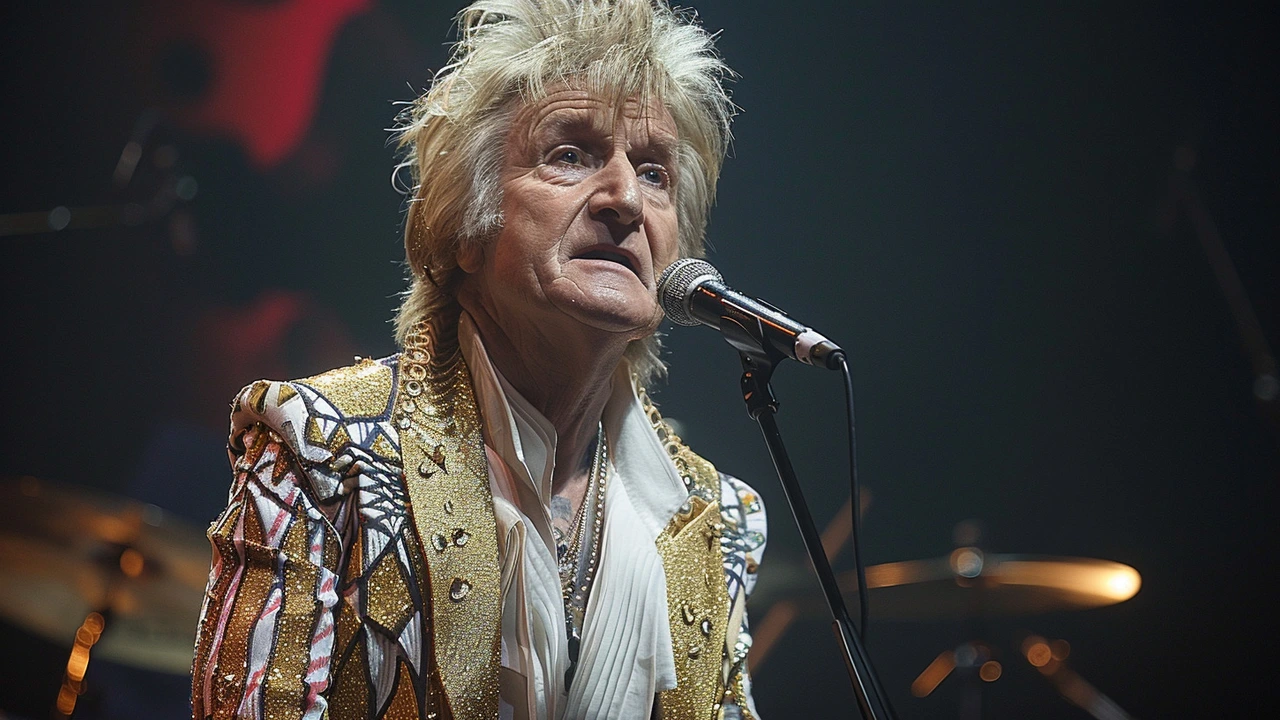
Rod Stewart’s Consistent Stance on Ukraine
Sir Rod Stewart’s condemnation of Russia’s aggressive actions in Ukraine is not new. Throughout 2022, as the conflict escalated, Stewart used his platform to voice his opposition against the war. On several occasions during his tour last year, he dedicated an anti-war song to Ukraine. His commitment to the cause went beyond mere words and music. He took tangible steps by renting and furnishing a home for a family of seven Ukrainian refugees, offering them a semblance of normalcy and safety during tumultuous times.
Stewart’s actions paint a picture of a man who believes in the responsibility of those with influence to use their voice for the voiceless. His decision to display the Ukrainian flag and Zelenskyy’s image during his Leipzig performance was undoubtedly a continuation of this commitment. However, this bold stance also exposes him to the prevailing currents of political and social disagreements, particularly in regions deeply affected by the repercussions of international policies.
The Surprising Backlash
For many of Stewart’s fans, the adverse reaction was surprising. The artist’s history of speaking out on global issues and supporting humanitarian causes has generally been met with appreciation and support. But the booing and whistling at the Leipzig concert suggest a more complex narrative. It indicates that for some, the message on that grand screen struck a nerve, tapping into underlying sentiments about energy concerns, political alliances, and national interests.
The response cannot be neatly categorized as mere dissent against support for Ukraine. It seems to encapsulate broader anxieties about the immediate impact felt by many Germans as they grapple with rising energy costs and economic uncertainties linked to the sanctions. This convergence of a rock concert and geopolitical discourse highlights how interconnected our global society has become, where even entertainment can serve as a flashpoint for broader debates.
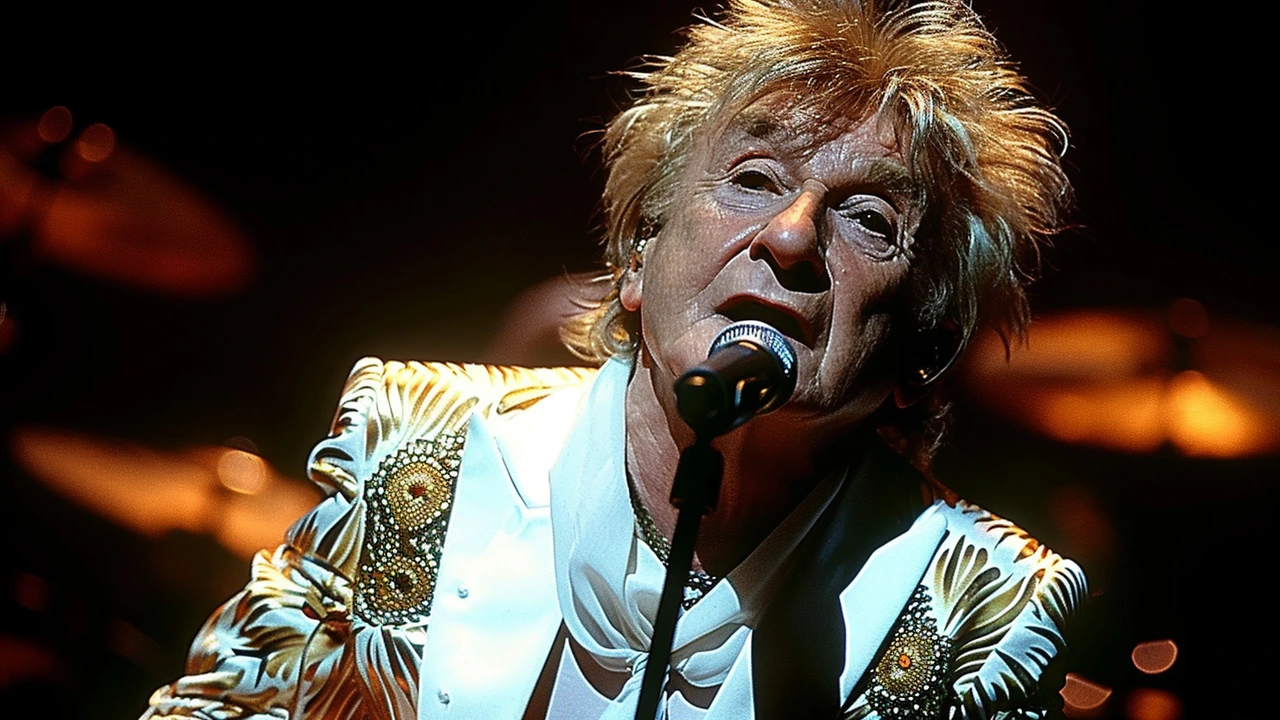
Looking Forward to Hamburg
As Sir Rod Stewart prepares for his next performance at the Barclays Arena in Hamburg on Thursday, the lingering question is whether he will alter his approach. Will he persist in showcasing the Ukrainian flag and paying tribute to President Zelenskyy despite the risk of another mixed reaction? It remains to be seen. What is clear, however, is Stewart’s unwavering dedication to standing up for what he believes is right, even if it means facing backlash.
Artists like Stewart have long played the role of cultural barometers, reflecting and sometimes challenging the zeitgeist. His actions in Leipzig serve as a poignant reminder of the power of music to not only entertain but also provoke thought, foster dialogue, and sometimes incite contention. Stewart’s stance underscores the fact that in times of conflict, neutrality can be a choice of the privileged, while advocacy often carries a considerable weight and risk.
A Broader Reflection on Art and Advocacy
The reaction to Stewart’s performance also beckons a broader reflection on the role of artists in political and humanitarian advocacy. When public figures use their platforms to raise awareness and voice support for causes, it extends the reach of these issues to audiences who might not be regularly exposed to them. However, it also opens these individuals up to criticism, misinterpretation, and backlash, as evidenced by the Leipzig concert incident.
Yet, the essence of artistry is inherently intertwined with expression, perspective, and sometimes dissent. The challenge lies in navigating the fine line between advocacy and audience alienation, especially in a world as divided and complex as ours. Rod Stewart, in his commitment to condemn the war in Ukraine and support its people, has navigated this path with a clear sense of purpose.
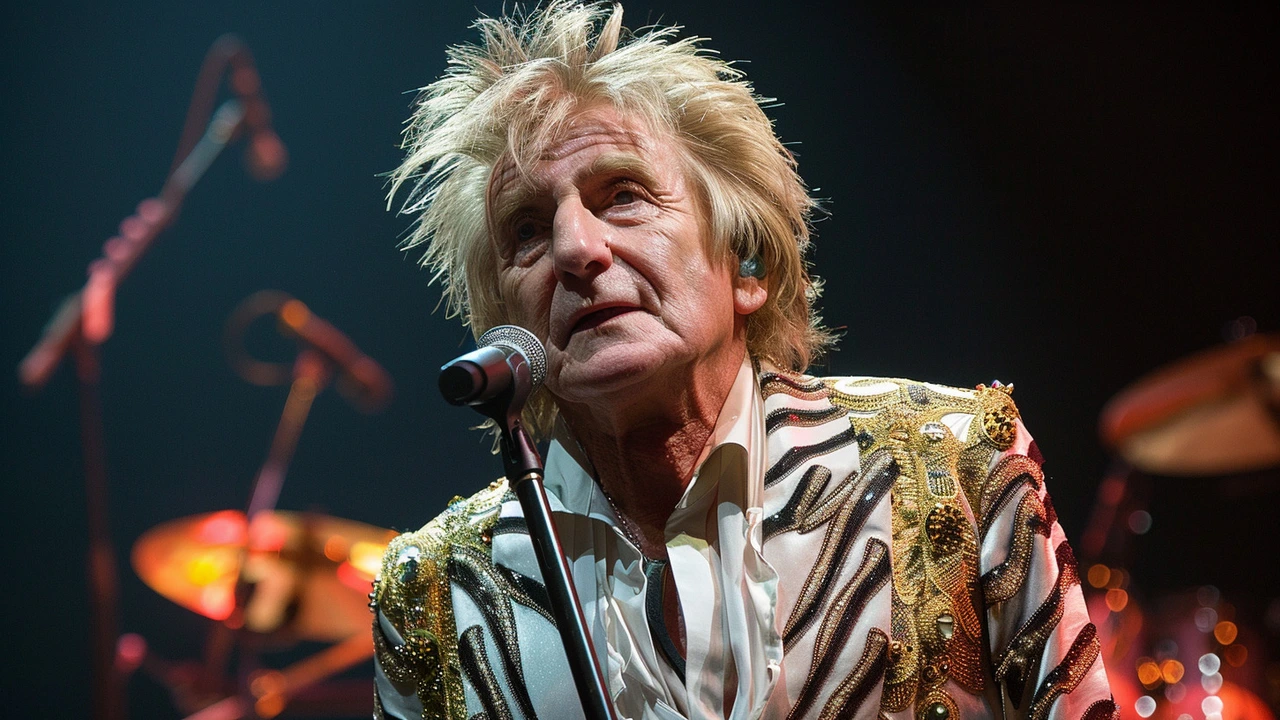
The Power of Public Figures in Shaping Discourse
In an age where political and social divides can feel overwhelming, the involvement of public figures in these conversations plays a crucial role. They can bring visibility to issues, sway public opinion, and sometimes even influence policy. Stewart’s actions in Leipzig exemplify the potent intersection of entertainment and social activism, highlighting how a single performance can spark widespread discussion and reflection.
Ultimately, as audiences, we are reminded that the stage is more than just a platform for performance. It can be a powerful pulpit for advocacy, a canvas for commentary, and a mirror reflecting the complex narratives of our time. As Sir Rod Stewart continues his tour, the dialog sparked by his Leipzig concert will likely resonate, prompting further reflection on the intersection of art, politics, and public sentiment.
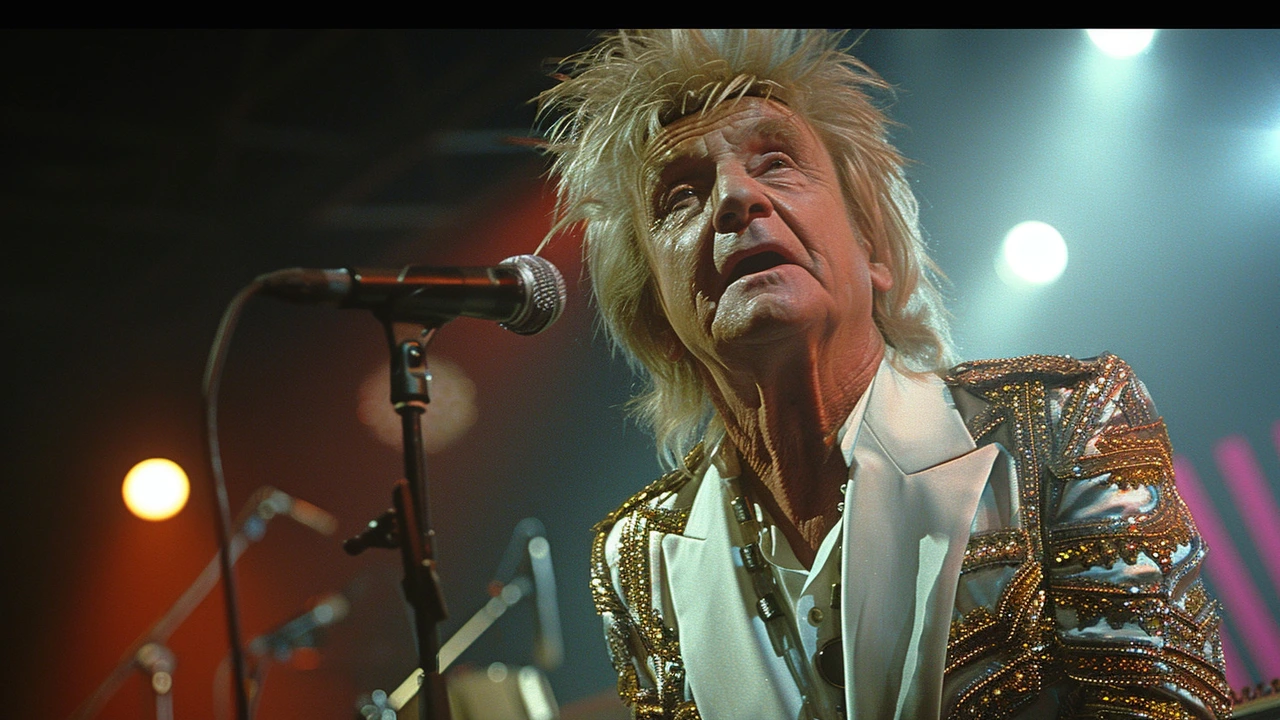


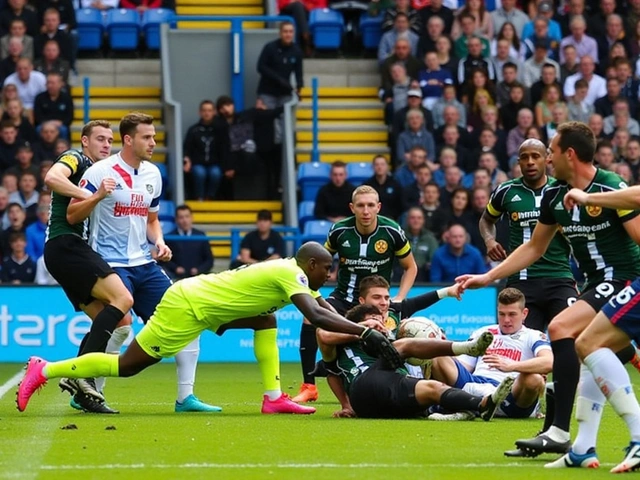

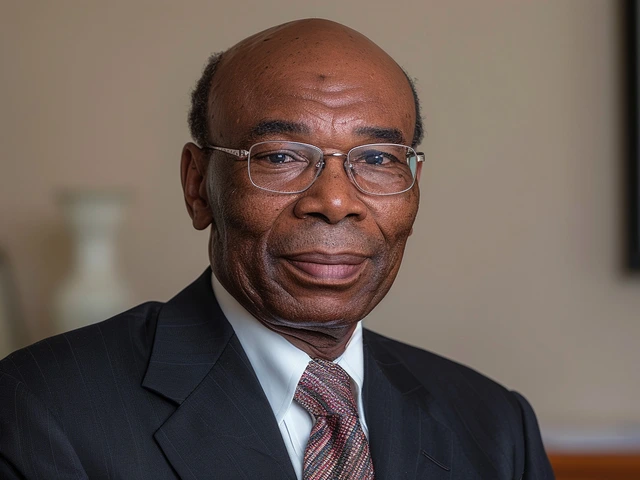

Write a comment